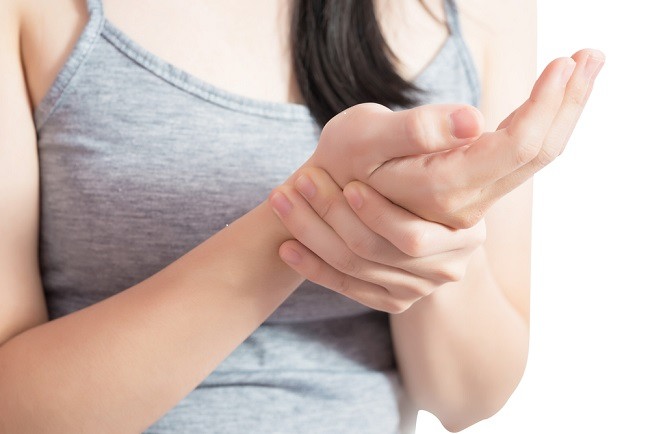Here Are Some Rare Diseases in the World
Weird but true. Maybe it's the
Rare diseases are diseases that rarely occur or have very few patients. A study states that there are at least more than 7,000 rare diseases suffered by 8-10 percent of the world's population. This means, there are about 500 million people in this world who suffer from this rare disease.

Several Types of Rare Diseases that Hear Foreign Sounds
Of the many rare diseases in the world, here are a few:
1. Progeria
Progeria is one of the rare diseases that can occur in children. This disease makes the child's body age rapidly. That is because there are abnormal genetic changes in a child's body. But unfortunately, it is not yet known exactly what triggers these genetic changes.
Progeria can be recognized by the appearance of a number of symptoms. At the age of one year, children born with progeria usually experience hair loss and growth retardation.
Other symptoms that can be experienced by children with progeria are the shape of a narrow face, small jaw, protruding eyes, loud voice, and hearing loss. In addition, progeria can also make sufferers experience problems with muscles, brittle bones, and stiff joints.
2. Riley Day syndrome or immune to pain
You may have wondered, is there anyone who cannot feel pain? The answer is there. But, not because they have superhuman strength, but rather they suffer from Riley Day syndrome.
This disease is very rare. Some of these cases are only found in Eastern European countries or in people who have ancestors from Eastern Europe.
Immunity to pain experienced by people with Riley Day syndrome is a result of disruption of the sensory nervous system. This nervous system controls the ability of a person to taste, feel hot or cold, including feeling pain. This condition is usually caused by a genetic disorder.
In addition to the sensory nervous system, Riley Day syndrome can also disrupt the central nervous system and autonomic nervous system which functions to control breathing, digestion, body temperature, blood pressure, and tear production. Some symptoms that arise due to disruption of the two nervous systems are abnormal blood pressure, shortness of breath, no tears when crying, diarrhea, and difficulty speaking.
3. Alien hand syndrome
The main symptom of alien hand syndrome is not being able to control hand movements. The hands will move by themselves, like someone is moving or like having their own control. Even in certain cases, this uncontrolled movement also occurs in the legs.
Alien hand syndrome can be caused by several things. Few new people experience this disease after a stroke, cancer, brain problems, or after undergoing surgery on the brain.
4. Xeroderma pigmentosum (XP)
This rare disease is characterized by a number of disorders of the skin, such as redness, burning, blisters, and pain, due to exposure to the sun even if only briefly. Therefore, people living with this rare disease must even avoid total sun exposure.
Xeroderma pigmentosum arises from genetic disorders inherited from parents. These genetic disorders make the body unable to repair or replace DNA damaged by sun exposure. Only 1 in 250 thousand people in the world suffer from xeroderma pigmentosum.
Several studies have shown that this disease is more prevalent in Japan and some countries in Africa.
5. Duchenne muscular dystrophy
This disease is also called by other names Duchenne muscular dystrophy. This rare disease is almost entirely experienced by men. Muscle dystrophy occurs due to genetic disorders that cause the body's muscles to not grow and function normally.
This disease usually starts to cause complaints and symptoms in children around the age of 3-4 years. Symptoms of this disease can include growth and development disorders, and weakness of the pelvic muscles, legs and shoulders, difficulty walking, and learning disorders.
Until now, there is no known effective way to deal with various rare diseases above. To anticipate the possibility of this disease, early detection can be done since the fetus is still in the womb. One of them is by genetic testing.
Label : Health
Comments
Post a Comment